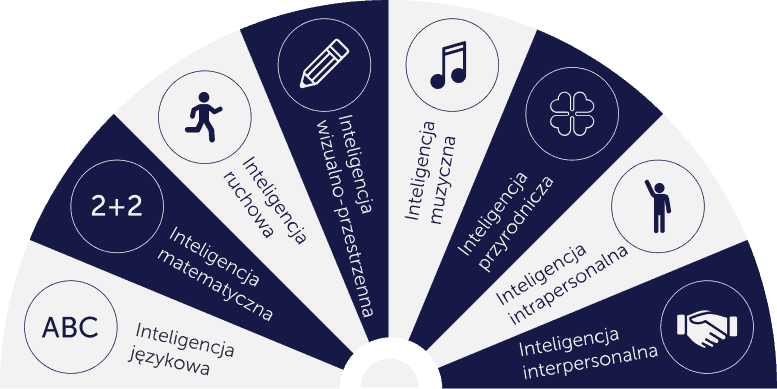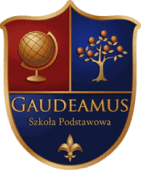Zapisz się na dzień otwarty
Classes I-III
For us, each child is gifted and unique.
Therefore, unlike traditional schools, we base the education process on the Theory of Multiple Intelligence by prof. Howard Gardner. According to her, each person has 8 types of intelligence that interact, complement each other and penetrate - creating a dynamic, specific intelligence profile.

Based on the observation of each student, we create an optimal learning profile adapted to their leading intelligences, develop their individual talents and interests. Knowing the strengths of the student allows teachers to use them in the process of supporting the weaker spheres, while satisfying the need for children's recognition. We make schooling rewarding, enjoyable, develop motivation and give you a sense of success and inspire you to continue working.
Our mission is JOY - LEARNING - and PASSION. We believe that learning about the world is all about the joy of discovering a mystery, achieving a goal, and overcoming obstacles. We do everything we can to make LEARNING at our school the most wonderful adventure that leads to learning about the world, seeing its beauty, and understanding what it is like. We help students discover their PASSIONS so that they can pursue their goals with enthusiasm....
WHY IS THE POTENTIAL OF MANY PEOPLE WHO HAVE SPECTACULAR SUCCESSES IN THE SCIENCE, ARTISTIC, SOCIAL AND SPORTS FIELDS IN SCHOOL EDUCATION REMAINING COMPLETELY UNMISSED?
The research conducted by an American psychologist and neurologist - a professor at Harvard University and holder of over 20 honorary doctorates - revolutionized the way we think about education. The professor questioned the existence of only one type of intelligence that can be measured by testing, presenting instead a range of many separate but equal intelligences. Research shows that the most desirable types of intelligence in traditional schools are linguistic and mathematical-logical. The rest are marginalized, devalued; their development is not supported in a deliberate and targeted manner. Each person has all types of intelligences that interact, complement each other and interpenetrate - creating a dynamic, specific intelligence profile. Learning about the strengths, i.e. identifying special abilities that will help in supporting the development of the weaker parties, is a guarantee of achieving success by students.
Classes I-III
Intelligencemultiple
Everyone else - all capable
For us, each child is gifted and unique.
Therefore, unlike traditional schools, we base the education process on the Theory of Multiple Intelligence by prof. Howard Gardner. According to her, each person has 8 types of intelligence that interact, complement each other and penetrate - creating a dynamic, specific intelligence profile.

Based on the observation of each student, we create an optimal learning profile adapted to their leading intelligences, develop their individual talents and interests. Knowing the strengths of the student allows teachers to use them in the process of supporting the weaker spheres, while satisfying the need for children's recognition. We make schooling rewarding, enjoyable, develop motivation and give you a sense of success and inspire you to continue working.
WHY IS THE POTENTIAL OF MANY PEOPLE WHO HAVE SPECTACULAR SUCCESSES IN THE SCIENCE, ARTISTIC, SOCIAL AND SPORTS FIELDS IN SCHOOL EDUCATION REMAINING COMPLETELY UNMISSED?
The research conducted by an American psychologist and neurologist - a professor at Harvard University and holder of over 20 honorary doctorates - revolutionized the way we think about education. The professor questioned the existence of only one type of intelligence that can be measured by testing, presenting instead a range of many separate but equal intelligences. Research shows that the most desirable types of intelligence in traditional schools are linguistic and mathematical-logical. The rest are marginalized, devalued; their development is not supported in a deliberate and targeted manner. Each person has all types of intelligences that interact, complement each other and interpenetrate - creating a dynamic, specific intelligence profile. Learning about the strengths, i.e. identifying special abilities that will help in supporting the development of the weaker parties, is a guarantee of achieving success by students.
Our mission is JOY - LEARNING - and PASSION. We believe that learning about the world is all about the joy of discovering a mystery, achieving a goal, and overcoming obstacles. We do everything we can to make LEARNING at our school the most wonderful adventure that leads to learning about the world, seeing its beauty, and understanding what it is like. We help students discover their PASSIONS so that they can pursue their goals with enthusiasm....


contact us
Bemowo Headmaster
Józefosław Headmistress
Gaudeamus
Edukacja Domowa
Subscribe to the newsletter
Our facilities


Students of the Józefosław school
In the national ranking, they scored on average:

Język polski 92% punktów (średni wynik w Polsce: 66%, średni wynik w Warszawie: 72%)

Matematyka 85% punktów (średni wynik w Polsce: 53%, średni wynik w Warszawie: 67%)

Język angielski 97% punktów (średni wynik w Polsce: 66%, średni wynik w Warszawie: 81%)
Students of the Bemowo school
In the national ranking, they scored on average:

Język polski 76% punktów (średni wynik w Polsce: 66%, średni wynik w Warszawie: 74%)

Matematyka 84% punktów (średni wynik w Polsce: 53%, średni wynik w Warszawie: 67%)

Język angielski 96% punktów (średni wynik w Polsce: 66%, średni wynik w Warszawie: 81%)
Students of the Bemowo school
In the national ranking, they scored on average:

Polish 67% points (average score in Poland: 60%, average score in Warsaw: 64%)

Mathematics 73% points (average score in Poland: 57%, average score in Warsaw: 62%)

English 90% points (average score in Poland: 67%, average score in Warsaw: 72%)

Polish 73% points (average score in Poland: 60%, average score in Warsaw: 64%)

Mathematics 93% points (average score in Poland: 57%, average score in Warsaw: 62%)

English 97% points (average score in Poland: 67%, average score in Warsaw: 72%)